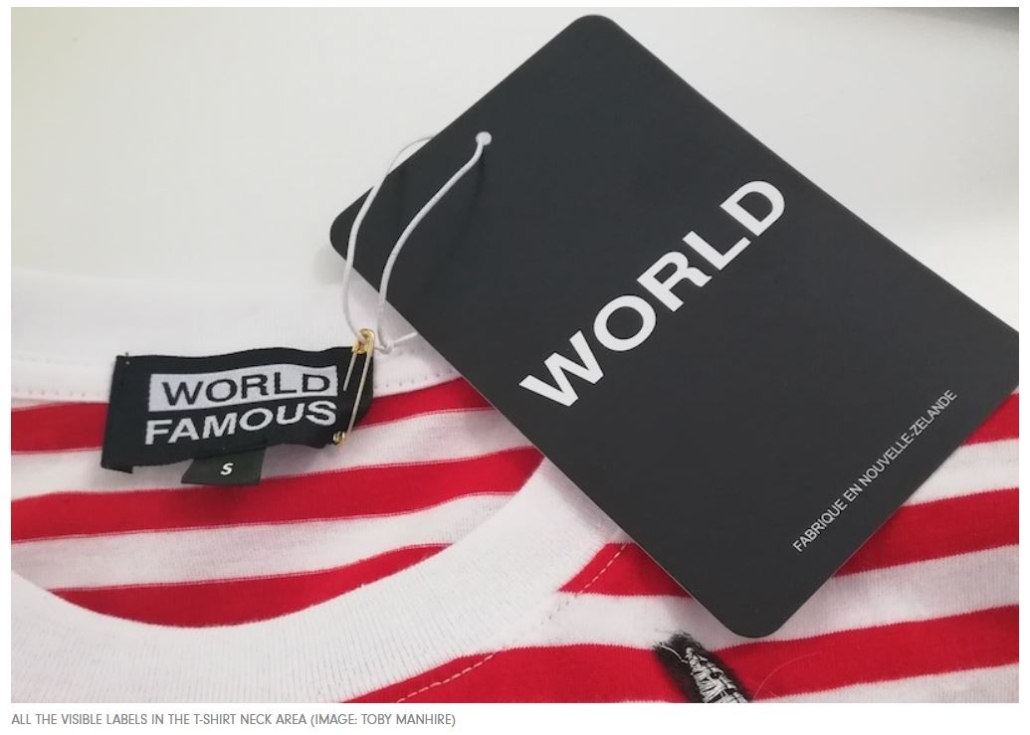Stone throwing and glass houses don’t mix
Last week it was found that a small amount of exclusively ‘Made in New Zealand’ fashion brands had pieces of their collections that were not exclusively made in New Zealand.
According to the article WORLD were selling T-shirts that had a WORLD swing tag attached to it stating ‘Fabrique en Nouvelle Zelande’ or ‘made in New Zealand’.
But if you looked closer you would find a label sewn into the shirts that said ‘made in Bangladesh’.
Dame Denise L’Estrange-Corbet, following the publication of the article, went on the offensive. Hard. She would not concede that the T-shirts they were selling gave the impression they had been made in NZ. Swing tag and all. She said she wasn’t misleading customers because the physical tag was made in New Zealand.
HONESTLY?! The tag was made in NZ. I’ll attach it to clothing that wasn’t made in NZ. No one will ever consider the two items as one. I was flabbergasted.
And you know what, the real clincher of the story? Denise L’Estrange-Corbet has made the cornerstone of her entire brand, both fashion and personal to be ‘Made in New Zealand’. She has also as recently as one month ago very loudly blasted other notable New Zealand designers for manufacturing in a third world country.
My take away points:
We love made in New Zealand
At least now we know just how unhealthy the textile industry in New Zealand is. Through all of the mudslinging light has finally been shone on an industry that could die within the decade.
I think this also shows how much we value having clothing made in New Zealand. The commerce commission has received nine complaints and issued a statement which reminds us how important it is to be genuine about the ‘made in New Zealand’ tag. The industry needs to protect the value placed on genuinely New Zealand made products and stories like this harm that.
The value and spotlight placed on made in New Zealand over the last two weeks will hopefully help to ensure the specific type of skill that is required to produce clothes here in New Zealand.
People who live in glass houses shouldn’t throw stones
As many of us have learnt the hard way, be careful what you publicly declare about other people. Because chances are you’re not 100% perfect either.
And when it comes out that you’re not a 100% perfect, you look ten times worse than whomever you were initially throwing stones at. Note Trelise Cooper’s crispy silence through this entire saga.
The lesson for brands
Dame Denise L’Estrange-Corbet has probably done damage to her brand. Less so because of the labelling, but more because of the way she reacted and the things she said.
She has acted in a way that was a bit arrogant and a bit disrespectful. Did she think her customers wouldn’t notice or care that a small amount of her collection wasn’t made in NZ? Perhaps it’s a bigger deal because of all the thrown stones.
At the end of the day, she had a moment of weakness, forgot her customers and why they buy her clothes. They want genuinely ‘made in New Zealand’ because that’s what she has positioned herself and her brand to be. If it were between a stripy strawberry t-shirt and keeping true to this position I think we all know which option her customers would take.


Leave a Reply
Want to join the discussion?Feel free to contribute!